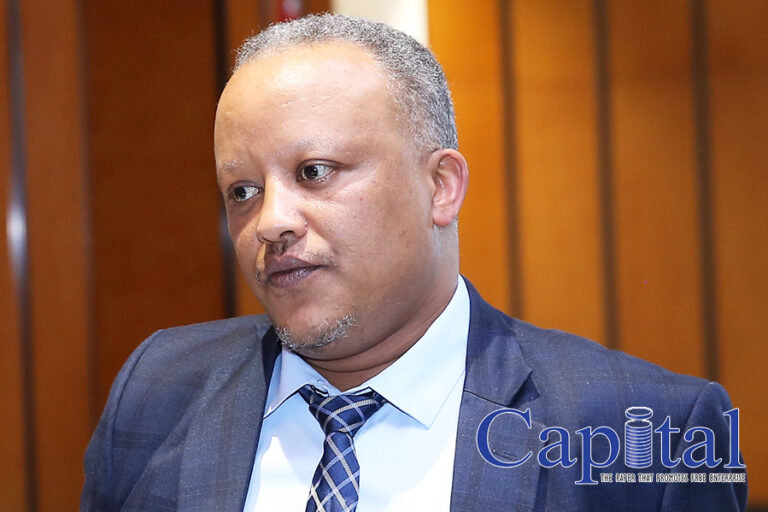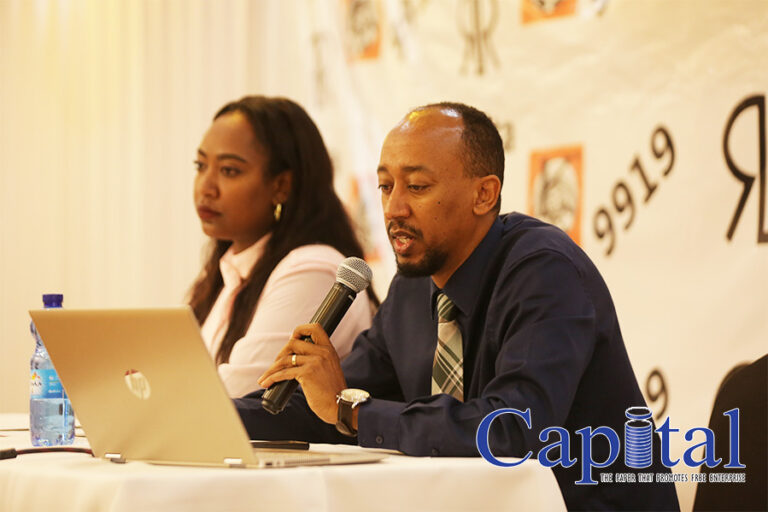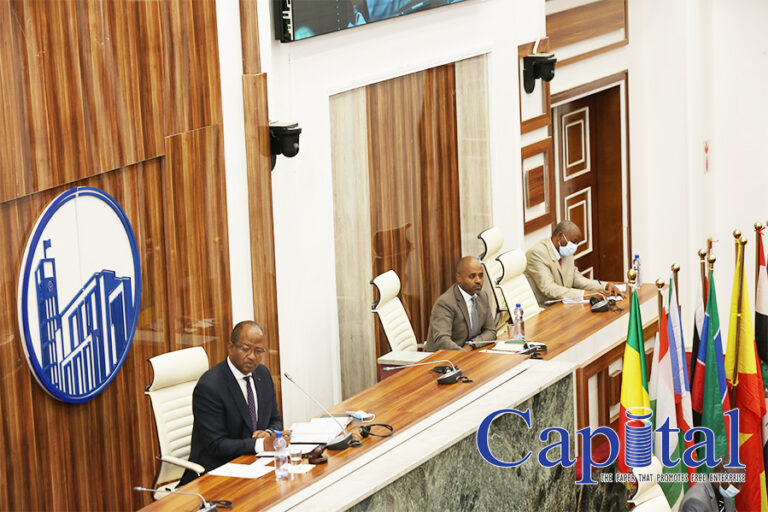Ethiopian Shipping and Logistics Services Enterprise (ESLSE) announced that the logistics fleet operation was commendable despite the conflict escalations in the past few months.
The state owned mammoth logistics enterprise said that despite the war affecting its operation, the shipments that are transported to the country is promising.
Roba Megersa, CEO of ESLSE, disclosed that there was a tendency of reducing the cargo shipment since the country was in war.
The volume of fertilizer cargo that was expected to arrive in Djibouti has been slowed down and similarly containerized cargos have shown reduction but when compared with the situation of the country, “the operation is commendable,” he remarked.
He stated that even though he does not have detailed information on the procurement, some portion of fertilizer has been delayed which slightly reduced the activity of ESLSE. He reminded that the shipment of fertilizer has been delayed for one month, and the procurement of UREA is not yet concluded.
“In terms of containerized cargo about 70 percent was fulfilled, which is great achievement if we compare with the condition where we were in the past months. It is good for the country since we were in the war economy,” Roba told Capital.
He said that in this coming month, three vessels carrying Ethiopian fertilizer will be docked at Djibouti.
Similarly relief cargos for those affected by the war are also expected to accelerate ESLSE’s activity in the coming months.
The global outbreak of COVID 19 is currently stated as a serious challenge for the logistics sector and global trade with similar case being observed on the Ethiopian market mainly on shipments price hike.
The pandemic has also decelerated the operation in the logistics sector in Ethiopia and Djibouti, which is the major outlet for Ethiopian cargos.
On her latest appearance at the Urban Infrastructure and Transport Standing Affairs Standing Committee of parliament, Dagmawit Moges, Minister of Transport and Logistics, said that the shipment of fertilizer that was expected to arrive at ports in Djibouti in October last year has been delayed. She added that up to 30 vessels caring fertilizer are expected to dock at the port in the coming few months.
The fertilizer is badly needed at the centre before the upcoming harvest season which is fast approaching. Experts said that currently the demand of fertilizer for the country has increased because of the latest initiative that the government introduced, which is farming through irrigation scheme in the dry season.
In relation to the economic activity of Djibouti, recently the International Monetary Fund stated that growth is expected to recover to about 4 percent in 2021 on a rebound in investments and construction, but the outlook for 2022 is less favorable and subject to downside risks due to the conflict in Ethiopia and a possible resurgence of the pandemic. Once the regional security and health situations are secured, growth prospects are strong, with a competitive port sector well-positioned to benefit from a rebound in regional and global trade.
Logistic fleet operations have weathered the storm, maintains ESLSE
Petroleum smugglers to face the music, warns Somali region
Somali region announces that it will take strict measures on those involved on petroleum contraband.
Sources said that despite the region accessing required fuel from the oil companies, which are distributing the petroleum imported by the Ethiopian Petroleum Supply Enterprise, shortage mainly in the capital JigJiga is observed.
According to sources in the regions, the problem is directly related with the illegal activity that some retailers or their employees are involved in including illegal activity of selling the product beyond the border.
Late this week Mustafe Muhumed Omar, President of Somali Region, on his social media page stated that the regional administration will take strict measures on those involved on petroleum contraband.
The Trade and Transport Bureau of the region has also said that the region and JigJiga have ample supply of petroleum, while shortage is seen because of the contraband which will be corrected moving forward.
It has been stated that benzene and naphtha of petroleum is one of the contraband commodity fleet from Ethiopia at the border area in the south, south east or west.
The main reason for that is that the Ethiopian government is subsidizing the product. The subsidy makes the product significantly cheaper than the price in neighboring countries market.
Due to that traders who have chains at the oil retail stations are smuggling the product to regional markets. The information that Capital obtained from the region indicated that the volume that petroleum crossing the border is growing from time to time which directly reflected in the local market negatively.
The information obtained from the Somali region President’s Office also stated that in the past few weeks, huge volumes of petroleum that was being transported in by different ways, including big trucks, have been sized.
Now the regional administration has warned that the government will take serious measures including confiscating trucks that are involved in the smuggling of the product. Moreover licenses of the stations which are involved on the illegal activity will be revoked besides other legal measures.
Recently the central government has announced that it has designed to apply a quota on oil distribution for stations in Somali and Oromia regions mainly for the towns that are highly attached with the contraband activity. The quota will allow the government to limit the amount it delivers for those border areas. The decision will impose a burden for regional administrations to tighten their regulation to curb the contraband on the aim to keep the public from petroleum shortage.
Ethiopia allocates almost similar proportion of foreign currency income secured from export earnings to oil import.
New ride hailing app comes with new idea
Eyita Business Solution Plc comes up with alternative sharing economy concept on the transport service.
The company joined the ride hailing industry with Right Ride (RR) brand said that it has already registered over four thousand drivers in the capital.
Temesgen Hussein, Managing Director of Eyita, said that the company has come up with alternative and attractive products that benefit drivers and their customers.
At a meeting the company officials discussed with drivers that it called ‘partner drivers.’ Eyita representatives said that the new products that the company introduced are more attractive for all stakeholders.
According to the plan the company will introduce an app that will allow RR drivers to add more customers under ‘ride sharing’ service on their way to transport a customer that they picked up earlier.
“In this scheme drivers will earn more income and at the same time customers will get discount since the new added up passenger will share some sort of their charges that they are supposed to pay,” Temesgen said.
Temesgen also said that it has already partnered with one of the biggest oil dealer in the country National Oil Compnay (NOC) to get different incentives for the drivers.
“Based on their performance in the RR operation drivers will be awarded a discount rate up to free gift from NOC motor oil and other services,” Temesgen explained.
He added that similar benefits and bonuses like internet data gift will also be provided by the ride hailing company.

The company has also provided smaller service charges compared with other similar companies that are operating in the country.
“We know the market percentage in terms of service charge and we have offered our rate that we considered affordable for transporters,” the Managing Director says adding “the percentage rate is not a promotional rate but it will continue as it is.”
Eyita Business Solution was in different business for a decade. The company disclosed that in the past two years it was undertaking a survey to introduce RR.
Temesgen said that internationally experienced individuals involved on the app development, “and it has different relevant features like low connectivity service, SOS and street pick up that will be easily operated by the drivers and customers.”
He concluded that the service is free from service charge for the first three months starting from early this week.
Parliament approves 122 bln birr additional budget
The House of Peoples’ Representatives (HoPR) has approved an additional budget of 122 billion birr out of which the biggest budget allocation was made for the Ministry of Defense. The HoPR assigned 90 billion birr for the Ministry of Defense while 5 billion birr and 8 billion birr were allocated for rebuilding war-torn areas and daily humanitarian assistance respectively.

The parliament approved the additional budget with a majority vote, nine objections and seven abstentions. The budget will be allocated for national security, humanitarian assistance, rehabilitation of war and conflict victims, and other implementations. The parliament allotted 106 billion birr for recurrent expenditure, 7 billion birr for capital expenditure, and 9 billion birr to cover expenses.
It is indicated that there is a need to allocate more budget due to the economic pressures in the war-torn areas and the inability to collect tax revenue on time due to Covd-19. A proposal was made to cover this additional budget and budget deficit from domestic loans.






